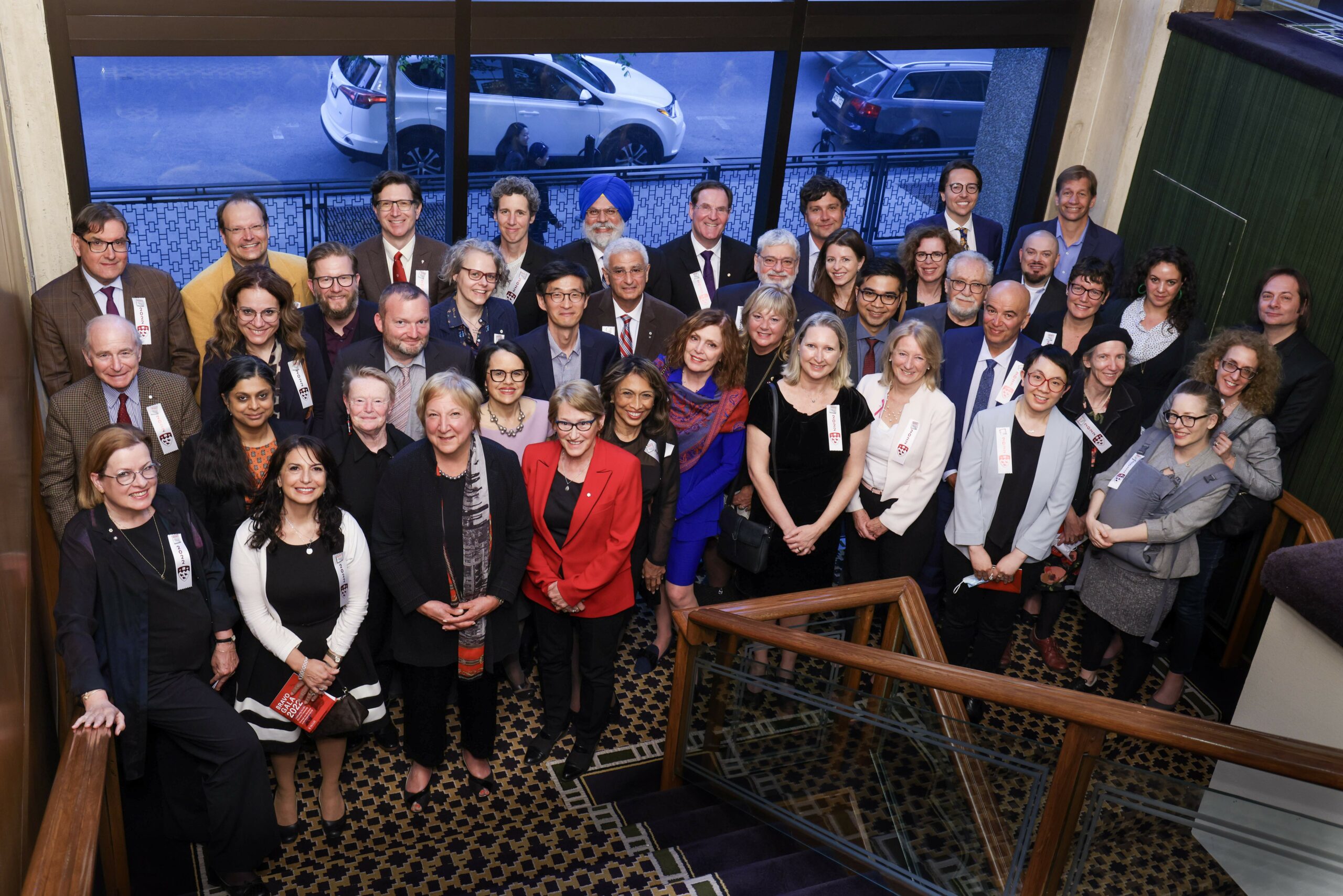
For the first time since 2019, McGill Research and Innovation welcomed close to 200 guests, including researchers, their families and friends, faculty members, students, and members of McGill’s academic leadership, to celebrate researchers and scholars across disciplines who won major provincial, national, and international research prizes and awards in 2021.
Principal and Vice-Chancellor Suzanne Fortier was in attendance and delivered her well wishes to the laureates present: “What a pleasure to be together this evening to congratulate you in person. Let’s enjoy this moment! We celebrate you and we thank you because you are contributing to making our community one that is appreciated and admired around the world.”
In her remarks, Martha Crago, Vice-Principal (Research and Innovation) and Bravo’s Master of Ceremonies, expressed her excitement about celebrating in person and highlighted the talents and strengths of the Bravo laureates: “This is a truly special night for our community. After more than two years of distance, it’s an extremely special pleasure to gather in celebration of those who really embody the excellence at this University. The researchers being honoured tonight have achieved national and international success and have demonstrated ingenuity, creativity, innovation, and perseverance. We are truly inspired by your example, Bravo!”
The future of research
As McGill approached its landmark 200th anniversary, 55 of McGill’s top researchers were asked to answer the question: What will be the biggest change in your field over the next 25 years? Their responses were featured in a project called the Bicentennial Digital Time Capsule, an initiative led by Research and Innovation, which launched in March 2021. The Digital Time Capsule videos were officially sealed during the Bravo ceremony on May 18 and the videos will be revealed in batches of five each year at McGill Homecoming for the next 10 years.
Immediately following the official sealing of the Digital Time Capsule project, Vice-Principal Crago expressed her excitement: “It is just a wonderful community of people doing incredibly important work. Little by little, we will let them tell us what the future will hold.”
To commemorate the sealing of the Digital Time Capsule, three Bravo laureates who were involved in the historic project were invited for a panel discussion on the future of research. The panel included:
- Morag Park of the Departments of Biochemistry, Oncology and Medicine, who was named a Chevalier de l’Ordre national du Québec and received the Prix Armand-Frappier from Les Prix du Québec in 2021.
- Jaswinder Singh of the Department of Plant Science, who became a Fellow of the Canadian Society of Agronomy in 2021.
- Jennifer Welsh of the Department of Political Science and the Max Bell School of Public Policy, who became a member of the American Academy of Arts and Sciences in 2021.
Professors Morag Park, Jaswinder Singh, and Jennifer Welsh joined Vice-Principal Crago on stage to watch their time capsule videos, discuss their predictions and to dig a little deeper into their thoughts on the future of research in their fields. Click here to watch their panel discussion.
A tribute to Principal Fortier’s leadership
During her closing remarks, Vice-Principal Crago delivered a touching tribute to Principal Fortier, who is nearing the end of her tenure as McGill’s Principal and Vice-Chancellor: “As McGill looks toward its third century, we are committed more than ever to innovate and to drive fundamental research forward. For the last nine years, McGill has had a true champion for research at its helm. I want to take this opportunity to thank our Principal and Vice-Chancellor for her dedication to and support of McGill’s research mission throughout her tenure. McGill’s reputation as one of the world’s best universities has been advanced by her consummate leadership. Thank you, Principal Fortier!”
Click here to view the full list of the Bravo 2022 laureates.
Watch the Bravo 2022 ceremony, which includes the panel discussion and the official sealing of the Bicentennial Digital Time Capsule project.
